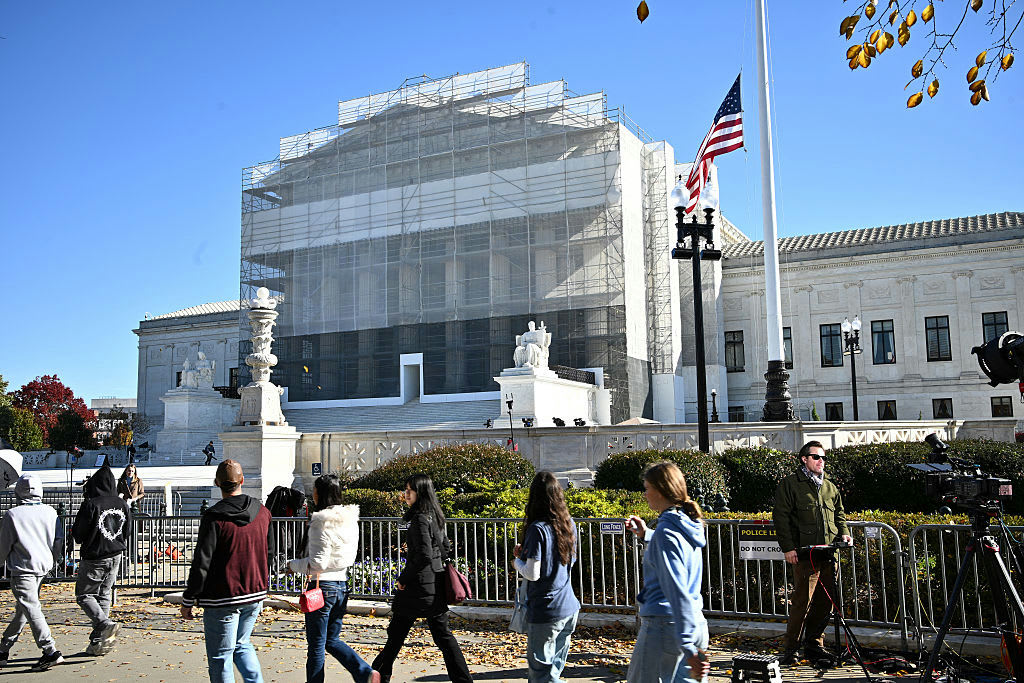Stocks whipsaw amid recession fears and China's retaliation threat
Stocks whiplashed on Thursday following Wednesday's 800 point rout. Wall Street is grappling with growing fears of a recession as well as concerns over China's threat to retaliate if the Trump administration moves forward with additional tariffs.
The Dow lost 100 points at the open before reversing. The blue-chip index closed higher by 99 points, or 0.4%, at 25,579. The S&P 500 stock index gained 0.25%, closing at 2,847, and the Nasdaq was essentially flat, closing at 7,766.
On Wednesday, the Dow shed 3.1%, while the S&P 500 declined 2.9%, reversing gains from the previous day when the U.S. delayed some of the tariffs threatened on Chinese imports.
Investors are increasingly wary about the risks of a recession, with those fears highlighted on Wednesday when what's known as the "yield curve" inverted to its lowest levels since 2007. Considered a classic recession warning signal, an inverted yield curve reflects investor concerns about slowing global economic growth and rising tensions due to the U.S. trade war with China.
"Continued inversion will be worrisome and top of mind as recession fears are escalating," TD Securities analysts said in a Thursday research note to clients.
When the yield on longer-term Treasury bonds falls below that of shorter-term issues, economists call that an "inverted yield curve." It suggests bond investors expect growth to slow so much that the Federal Reserve feels compelled to cut short-term interest rates to support the economy.
The yield on the 10-year Treasury dropped from 2.02% on July 31 to below 1.60%. On Wednesday, it briefly fell below the two-year Treasury's yield for the first time since 2007.
Each of the last five times the two-year and 10-year Treasury yields have inverted, a recession has followed.
Weak economic data from Germany and China has added to signals of a global slowdown. "The countdown to a recession has just started," Hussein Sayed of FXTM said in a report.
China's threat
Uncertainty about the U.S.-China tariff war has spurred a return of volatility to the stock market in August. The Dow has dropped more than 5% for the month so far and the S&P 500 is down more than 4%.
China on Thursday threatened retaliation if Washington steps up its war over trade and technology by going ahead with planned Sept. 1 tariff hikes on additional Chinese imports.
Beijing will take unspecified "necessary countermeasures," the Chinese government's cabinet said in a one-sentence statement. It gave no details or any indication that plans for trade talks in Washington in September might be affected.
President Donald Trump says he plans to impose 10% duties on an additional $300 billion of Chinese imports, extending penalties to almost everything the United States buys from China.
The Chinese announcement made no mention of Mr. Trump's decision Wednesday to postpone penalties on about 60% of those goods until Dec. 15. Among the products given a reprieve are mobile phones, laptops, video game consoles, some toys, computer monitors, shoes and clothing.
Trade between the two biggest global economies has plunged, battering suppliers of goods from medical equipment to soybeans and threatening job losses. Chinese imports of U.S. goods fell 19% from a year earlier in July. Exports to the United States declined 6.5%.
Trade imbalance
China's lopsided trade balance with the United States means Beijing has almost run out of imports that haven't already been hit with retaliatory tariffs. But Beijing has extended punishment for U.S. companies by delaying customs clearance for their goods and delaying issuing licenses in finance and other fields.
Washington and Beijing are fighting over long-festering complaints in the U.S. and elsewhere that China steals or pressures foreign companies operating there to hand over technology and improperly subsidizes its industries. The U.S., Japan, Europe and other trade partners complain Chinese plans for government-led creation of global competitors in robotics, electric cars and other technologies violate Beijing's market-opening obligations.
China offered to narrow its multibillion-dollar trade surplus with the U.S. by purchasing more soybeans and other agricultural exports. But negotiators are resisting pressure to roll back industry plans the ruling Communist Party sees as a path to prosperity and global influence.
Breakdown
The talks broke down in May over how to enforce a deal. Beijing says Trump's tariffs must be lifted as soon as an agreement takes effect. Washington says tariffs must stay to enforce China's compliance.
Mr. Trump and President Xi Jinping agreed in June to resume negotiations but neither side has indicated a willingness to compromise. A round of talks last month in Shanghai ended with no indication of progress.
By this point, the Trump administration has imposed 25% tariffs on $250 billion of Chinese imports.
Beijing has retaliated by imposing punitive duties on $110 billion of American goods. Based on last year's imports of U.S. goods, that leaves about $45 billion of goods that haven't been hit with penalties.





